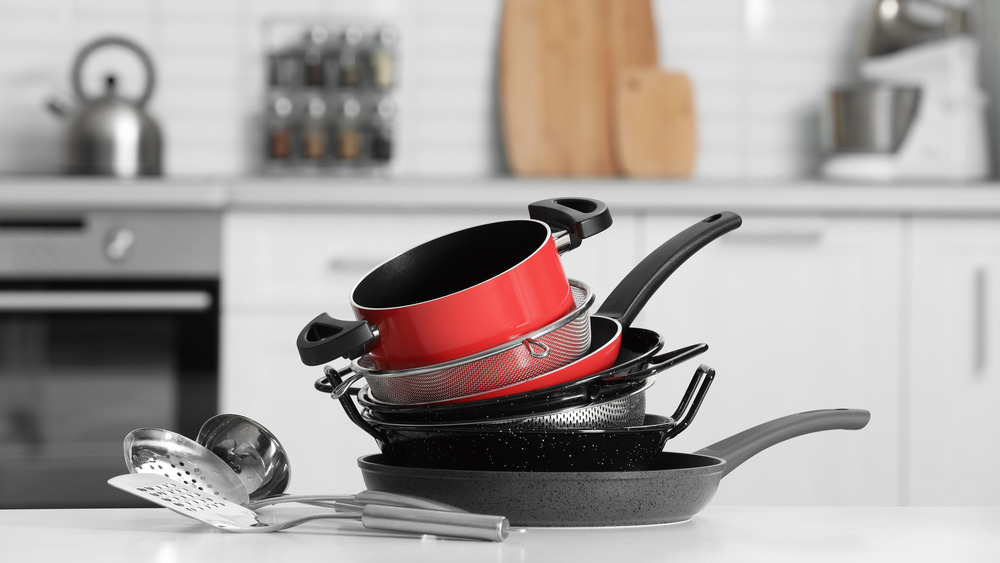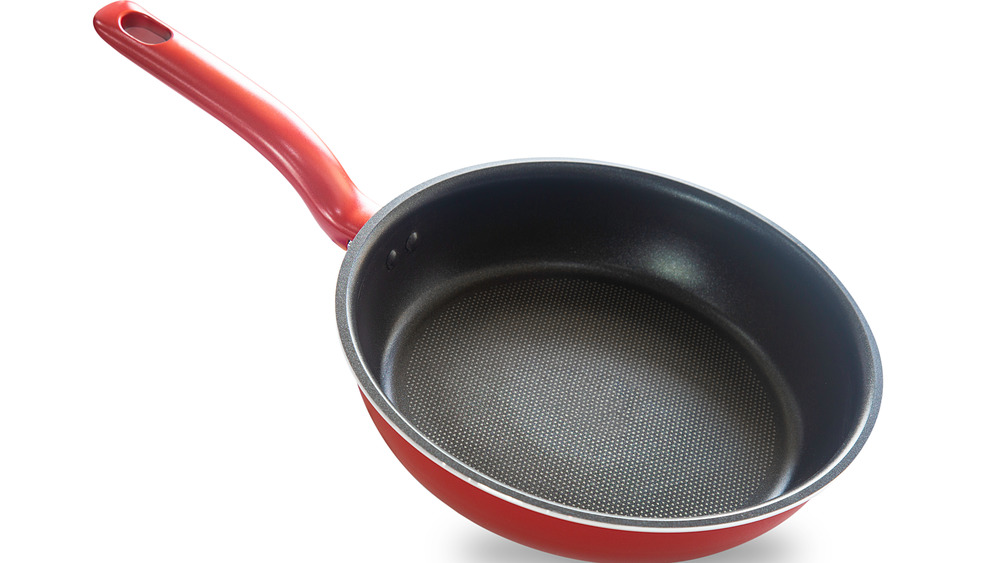Read This If You Use Nonstick Cookware
If you spend any amount of time in the kitchen, you probably own some nonstick cookware. These pots and pans make cooking so much simpler and the clean-up process is infinitely easier than traditional cookware. But is it safe long-term? And are there hidden health hazards lying within that nonstick coating?
The coating that prevents food from sticking to a pan is called polytetrafluoroethylene (PTFE), according to Healthline. Most of us know it by the brand name Teflon, since it is also found in products like wire sheaths, raincoats, and carpet protectors.
But the chemical that has researchers worried is perfluorooctanoic acid (PFOA). It was used in the production of nonstick cookware prior to 2013, and has been linked to thyroid issues, liver disease, infertility, low birth weight, and chronic kidney disease. The FDA required it to be phased out, however, and today any Teflon that is manufactured in the United States cannot use PFOA. But China is a different story.
Regular home cooking isn't going to pose many risks
There is also concern that when PTFE is heated to high temperatures, it can release PFOA, according to LiveScience. That being said, the pan would need to be heated to nearly 600 degrees, a temperature rarely seen in home cooking (via Today). Symptoms of inhaling PFOA fumes include flu-like reactions like fever, headache, and body aches. It is temporary and usually passes in 12 to 48 hours (via Healthline).
Another concern is the potential for the Teflon coating to flake off over time, contaminating food. The good news though? It's not something consumers should worry about, as the PTFE coating is non toxic, and will not affect the body.
In general, very high heat is what will most impact the safety and longevity of nonstick cookware. Kyle Steenland, professor of environmental health at Emory University told LiveScience that most everyday cooking will have little impact. "Now, if you burn your pans for an hour at high heat, it will break down. But that will be the least of your problems because your house will be on fire," he said.


